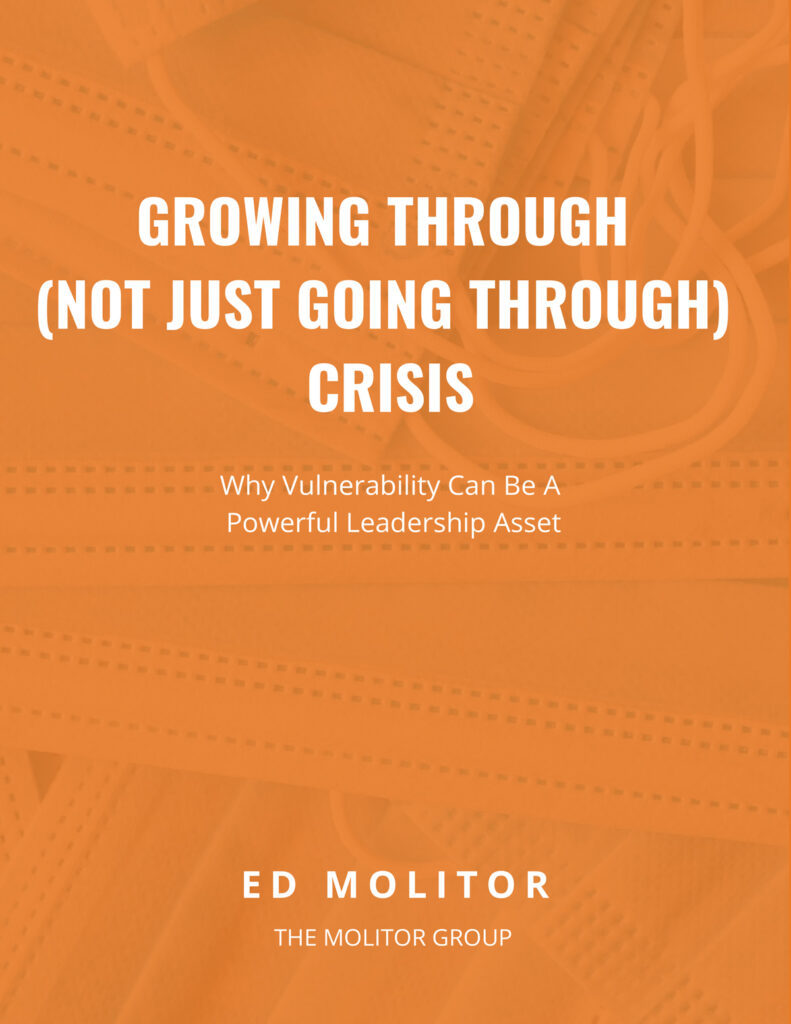As a college basketball coach, I learned to get to know people and be genuine, and those skills have also empowered me in the business world. The way people treat you is indeed a direct reflection of your character, but I also learned something far more valuable. It is something that will serve me; it will serve you, it’ll serve your team, and help you become a much better leader. When you’re looking at how to improve as a leader, ask yourself, why is vulnerability important in leadership?
Vulnerability is an asset for your team — traditionally, business leaders have worked to avoid showing vulnerability and to emanate strength and infallibility instead. We don’t want to be seen as weak, indecisive, or lacking in courage. However, avoiding vulnerability can lead to detachment from your team and can come across as inauthentic or as an emotional facade. Vulnerability is made up of many important qualities. Authenticity, trust, the ability to admit you don’t have all the answers, and a willingness to ask for help when it is needed
And that is the fact that the way you treat others, no matter what the situation, no matter the circumstances, right, wrong, or indifferent, directly reflects your character.
There is no doubt that we are living in a crazy time right now, and we must continue to keep things in perspective. Because by keeping your core values front and center in your mind, getting to know other stories, and understanding there’s always more there, you will learn to be a better leader.
Building Relationships
Think about it like this; the people on the front lines making sales are the first responders, so to speak, so we in middle management and upper-level management should be supporting them. Too often, middle management and upper level think it’s the other way around. Sometimes a good morning, a hello, or even a smile can go a long way in someone’s day.
One of the critical things that I talk about in my leadership training is the power of the huddle. What I find fascinating is that asking people what they think and what they would do, is very powerful — and it’s terrifying for all involved. We can’t fix all the problems or implement all the ideas, but we can keep trying things here and there. The one constant among all people is that we all have problems and issues; the complexities of those problems are different; what might be a problem to someone else might not be a problem to you. Everyone lives in a different world, but having the self-awareness to listen, having empathy, and compassion is the key.
The Importance of Authenticity
Authenticity is expected from business leaders by most employees today. It is a byproduct of authentic leadership, and it is the cornerstone of every relationship. You don’t get trust without authenticity.
Get to know people, get to know their stories; when you do that, you’re going to get to know them at a deeper level, know what makes them tick, and that will allow you to have a more significant impact on their life. It will impact their success with their families; it will impact their relationships with their mentees; it will impact their relationships with their mentors; the positivity will keep snowballing.
Don’t let the challenges that we’re going through get in the way; don’t let your differences get in the way of leading your team in a very authentic, sincere, and genuine way. We talk about the lens of reality, and the reality right now is that many organizations are going through the battle of their lives. Don’t get so wrapped up in focusing on how a challenge impacts you that you forget your power to influence others. Keep working towards impacting others, leading others, doing for others, being selfless, having the servant mindset, keep pouring into it. You don’t just pour into people when it’s easy or when it’s convenient. You make it become a way of life, you become intentional, it becomes your default as a leader.
As you continue to lead your people, what can you learn from them, how can you facilitate those conversations that stir up creativity, and most importantly, what will you do with that information? Take the available information and empower yourself to have a more significant impact on everyone in your company’s life. Continue to be the face your team needs to see and the voice your team needs to hear to dominate the goals in front of them.
For more information and insight into why is vulnerability important in leadership or if you want to know how to develop your leadership skills further, check out some of my other blog posts, or tune in to The Athletics of Business podcast, where I discuss all aspects of leadership with a variety of inspiring leaders.



